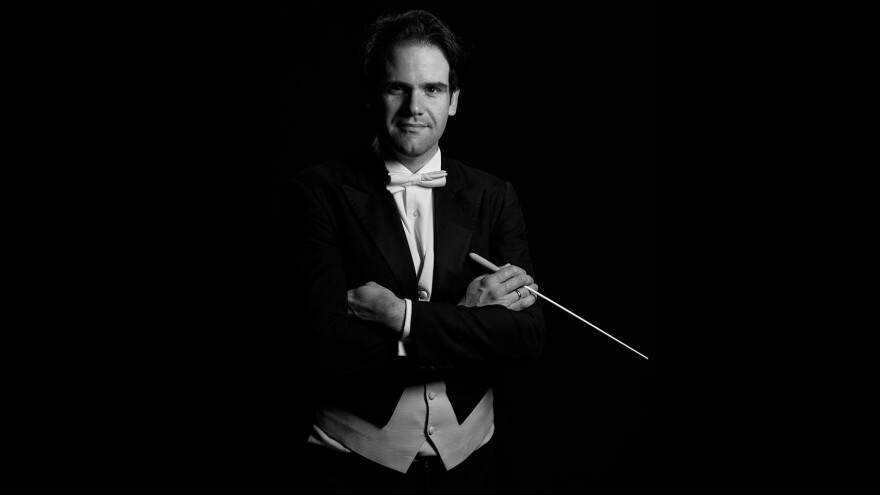NOTE: BPR Classic is airing the entire hour-long conversation between Darko Butorac, the new music director of the Asheville Symphony Orchestra, and BPR arts & culture producer Matt Peiken. Broadcasts are at 7pm Dec. 28 and 10am Jan. 15.
Darko Butorac was a teenager in Seattle when the grunge movement swept the city and American pop culture. But as millions flocked to the music of Nirvana, Pearl Jam and Soundgarden, Butorac saw classical music as his rebellion.
“Grunge was becoming big and I was like ‘Oh my god I can’t stand this,’” he said. “Put yourself in this situation: You’re coming from socialist-communist Eastern Europe, you move to the Pacific Northwest, and it’s about as far as you can get from Eastern Europe, both geographically and culturally. The transition for me was very difficult, so I didn’t really feel at the moment that I fit in.”
Butorac was drawn to the cello, which led him to performing in youth ensembles and orchestras, which in turn introduced him to conducting. His path to the podium of the Asheville Symphony Orchestra, as its new music director, has been almost without blemish.
Butorac talks about his difficult transition from Yugoslavia to adolescent life in Seattle. He also goes deep into his approach of working with his musicians, along with his approach to concert programming and the challenges of introducing new music into the repertoire.
Here, Butorac recalled how he approached his early career.
“OK, so I need to learn instrument, so I’m going to study the cello. And after that, I’m going to go to grad school and a big school, and after that, I’m going to try to win a competition and get my foot in the door and win a job,” he said. “And after that, I’m going to start my career, and every one of those steps happened along the way.”
This is a year of transition for Butorac, and of travel—his three music directorships will become two when he finishes up with the Missoula Symphony in Montana. He became music director of the Tallahassee Symphony five seasons ago, and he emerged this summer from an original applicant pool of 447 to land in Asheville.
“My only desire is to make the best music possible with the best musicians possible,” he said. “That’s my only goal in life. Career trajectory doesn’t matter. What matters is doing the best possible thing every time you step on the podium.”
“Mothership,” a 2011 composition by Mason Bates, opened the Asheville Symphony’s program in November. It was notable, among several reasons, because it’s new music.
“I’m constantly on the search for new composers, new pieces, for new music to do,” Butorac said. “And it’s not easy to find that meets all the parameters—that one can afford it, that it’s something your audience can handle given its exposure to repertoire in recent times. Is it something that fits into the concert? Does the instrumentation fit into the concert? Is your hall an appropriate place for it? There are so many factors.”
New works also have to compete for places on the calendar against centuries of tried and true pieces that bring people into concert halls. Butorac sees it as his role to prepare his audiences and his musicians to receive new music. He said Asheville is the first orchestra he’s led with the budget to potentially commission new work.
“But up until this point, what I’ve tried to do is, when I’m looking at new music, I’m looking at pieces that are getting some traction, that have been played more than once, and that are seeing multiple plays in important venues,” Butorac said. “Then if you bring a piece like that to Missoula or Tallahassee, you’re doing a service to your audience. You’re saying ‘Here’s a composer who is living, and who may be present at the concert, whose piece is being performed and has a life, has a future, and I’m sharing that with you.’”





